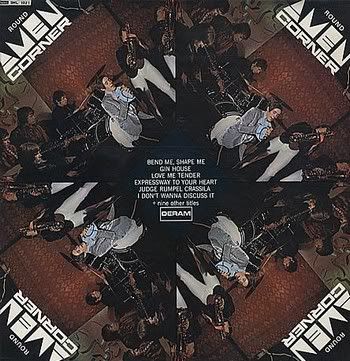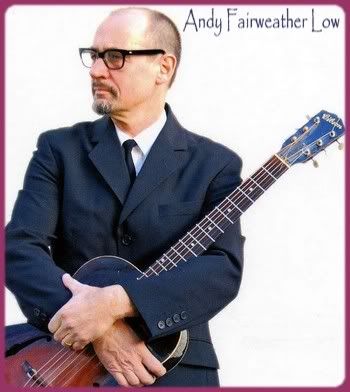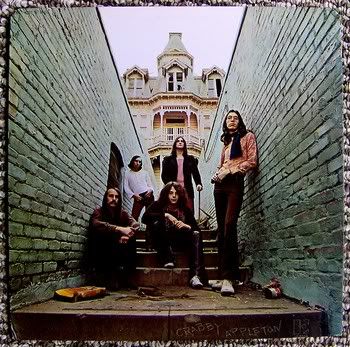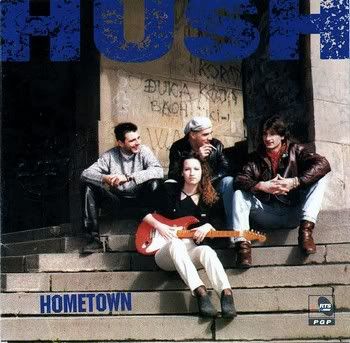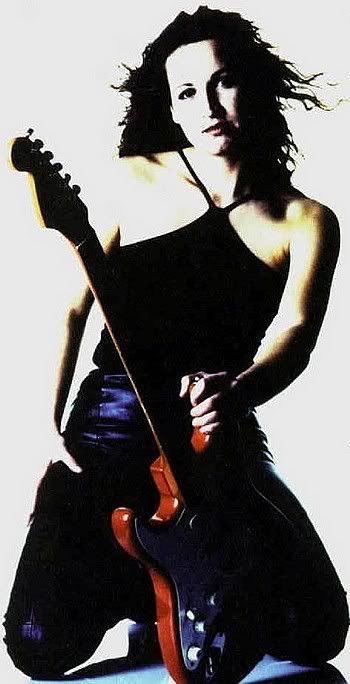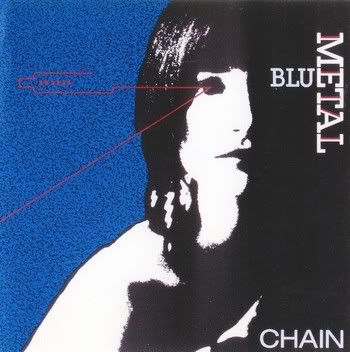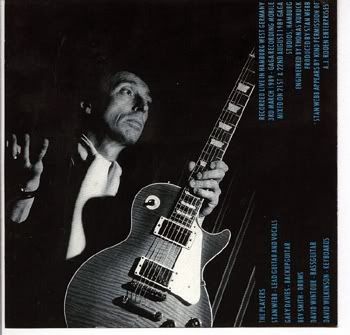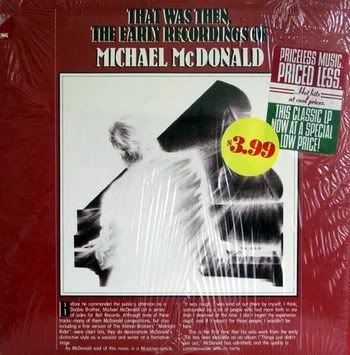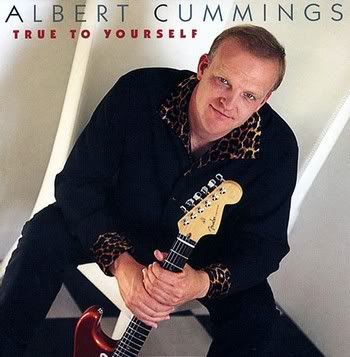
Albert Cummings - True to Yourself - 2004 - Blind Pig
Albert Cummings is one of the best blues rock talents to emerge from the U.S in recent years. It has been stated that this guy could be the new S.R.V. He may have a hill to climb to reach that stature, but it's a hill that's getting smaller! This is a superb album from this New England blues rocker and is VHR by A.O.O.F.C. All the tracks here are great. Albert has a wonderful guitar technique, and he provides some blistering displays of blues guitar rockin'. This album will "blow your little cotton socks off". This guy has simply got to be heard by more people. He is going to be a future blues giant. Buy his absolutely terrific "From the Heart" album. You won't regret it. Brilliant stuff! Check out his mindblowing "Feel So Good" live album @ ALBCUM/FSGL
TRACKS
1 Blues Makes Me Feel So Good
2 Come Up for Air
3 Follow Your Soul
4 Lonely Bed
5 Man on Your Mind
6 Separately
7 Sleep
8 Where Did I Go Wrong
9 Work It Out
10 Your Sweet Love
All tracks composed by Albert Cummings, except "Blues Makes Me Feel So Good" by Albert Cummings/Tommy Shannon
MUSICIANS
Albert Cummings Guitar, Guitar (Rhythm), Vocals
Tommy Shannon Bass
Riley Osborne Piano, Keyboards
REVIEW
Although they might not admit it, fans of the late Stevie Ray Vaughan have been waiting for the next Stevie Ray to rise out of the blues-rock circuit, and while countless hotshot guitar slingers certainly have dressed the part, few if any of them have that same mixture of explosive skill and hard-earned soul. New England's Albert Cummings might just be the guy who can do it, though. Calling him the new Stevie Ray wouldn't be fair, certainly, but Cummings, a carpenter from Williamston, Massachusetts, has that same explosive, soulful and emotional tone that made Vaughan so special. He also is somewhat of an "aw, shucks" kind of guy, with very little show-biz about him, but when he picks up that Fender Stratocaster, sparks fly. True to Yourself is Cummings' debut with the Blind Pig label, and working with Double Trouble bassist Tommy Shannon is sure to draw parallels with Vaughan, but Cummings, although his guitar tone and attack are definitely similar, is a much more grounded songwriter, and there is somewhat of a domestic veneer to these tracks. Cummings tackles themes that would be familiar to any working stiff trying to support a family in an uncertain economy, and in this context, the blazing guitar breaks function as nothing short of deliverance. This workingman's approach works well on the best tracks here, which include "Come Up for Air," the explosive boogie of "Your Sweet Love," the moody "Sleep," and the wise and masterful "Follow Your Soul," which closes the album, but other tracks unfortunately fall into a sort of rote blues-rock category. Cummings is an intriguing mixture of everyman humility and blazing guitar genius, and True To Yourself has strong moments, but one can't help but feel that his defining tracks haven't been cut yet, and are perhaps just around the corner. © Steve Leggett, allmusic.com
SHORT BIO
Albert Cummings was born in Williamston, MA, and has made his home in the New England region all his life, where he runs a successful home construction business. He started playing the five-string banjo when he was 12 and appeared headed for a regional career in bluegrass when he encountered the music of Stevie Ray Vaughan in his late teens, and soon made the transition to electric guitar. His first public performance on guitar came at a wedding reception when he was 27 years old, but soon he was on the Northeast blues circuit with his band, Swamp Yankee, and an independent CD, The Long Way, was released in 1999. A chance encounter with Vaughan's old band, Double Trouble, led to Cummings' first solo record, From the Heart, which was recorded in Austin, TX, and featured Cummings fronting Double Trouble. The record was self-released by Cummings, but was soon picked up for distribution by Under the Radar and released in 2003. Cummings' soulful and explosive approach to blues and rock caught the attention of Blind Pig Records, which signed him to a multi-album deal. His debut album on the label, True to Yourself, was released in 2004. He has since shared the bill with B.B. King, Buddy Guy, Charlie Musselwhite, John Hammond, Susan Tedeschi, Tommy Castro, Chris Duarte, Bernard Allison, the Neville Brothers, the Fabulous Thunderbirds, Sheryl Crow and Duke Robillard. He released his third album, Working Man in 2006. © Steve Leggett, All Music Guide
MORE ABOUT ALBERT CUMMINGS
Breaking every cliché associated with the blues while producing some of the most powerful music of the 21st century comes as natural to Albert Cummings as swinging a hammer while constructing one of his award-winning custom built homes. The Massachusetts native learned the requisite three chords on the guitar from his father, but then switched to playing banjo at age 12 and became a fan of bluegrass music. Like everything he tackles, he threw himself headlong into the pursuit, going to festivals and winning several picking contests in high school. Before graduating he heard the early recordings of Stevie Ray Vaughan, however, and was floored by the virtuosity. While in college in 1987 he saw Vaughan perform and he returned to the guitar with a new outlook and resolve. He had another tradition to live up to first, however, and he studied the building trade in order to follow his family into the home building business. Not until he was 27, an age when other musicians were either already established or had long ago put their dream aside for the realities of life, did Albert finally decide to go for it. An intense period of wood shedding resulted Albert sharing a bill with Double Trouble, the late Stevie Ray Vaughan’s rhythm section. So taken with Albert’s fire and passion were bassist Tommy Shannon and drummer Chris Layton that they volunteered to play on and produce his debut recording. In 2003 the aptly-titled From the Heart (Under the Radar), with the awesome power of a Nor’easter and the soul of a natural born artist. No less a giant of the blues than B.B. King, who Cummings acknowledged with a funky version of “Rock Me, Baby,” dubbed Cummings “…a great guitarist.” In an era of cowboy-hatted poseurs, Cumming delivered the goods straight from the heart and shoulder with a wallop generated by his talent rather than his wardrobe. A year later Double Trouble joined Cummings again as he signed with Blind Pig Records to create True to Yourself. This time they brought in legendary producer Jim Gaines to control the sessions. The all-original release further showcased Albert’s rapidly developing songwriting chops and deeply emotional vocals as well as stunning guitar pyrotechnics that put the metallurgical properties of his strings to the test. Tours and shows with blues legends B.B. King, Johnny Winter, Buddy Guy and others brought his music to an audience grateful for the opportunity to be rocked hard by a man possessed to play every song like his life depended on it. Working Man (Blind Pig), Albert’s summer of 2006 blockbuster release, is the culmination to date of a guitar hero’s career just taking off. A punchy, stomping cover of Merle Haggard’s blue collar standard “Working Man Blues” brings it all home for the master builder and musician. The swinging Texas blues of “Please,” the instant barroom boogie classic “Party Right Here,” the snaky slow drag “Rumors” and the rousing rocker “Feeling End” show variety well beyond the typical slow blues and shuffles of so much contemporary music. The deeply emotive ballad “Last Dance” that closes the disc is so evocative that a Hollywood movie could be written around it. Albert Cummings is a man of his times and the man for the times. As he has done with his innovative homes, he has taken tradition and built his own musical edifice that expresses his thoughts and dreams. It is a vision that alternately excites and soothes while also clearly providing a glimpse of his unlimited future. The best is yet to come. © bellyup4blues.com



